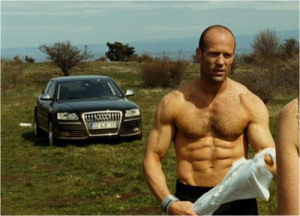Madeleine E. Robins's Blog: Madeleine Robins: Journal, page 12
April 8, 2015
Raising Feminists – The Fairy Tale Edition
 This weekend my husband and I went to the Walt Disney Family Museum in San Francisco’sPresidio. We’d been meaning to for a while, and though we missed the exhibit of Walt’s massive train set (my husband has a 7-year-old boy’s love for trains) the rest of the museum was pretty cool. Lots of tech stuff, lots of original art, lots of “making of” information and displays. Because my husband is a recording guy, he ate it up with a spoon. And because I’m a story guy, if you will, I ate it up with a...
This weekend my husband and I went to the Walt Disney Family Museum in San Francisco’sPresidio. We’d been meaning to for a while, and though we missed the exhibit of Walt’s massive train set (my husband has a 7-year-old boy’s love for trains) the rest of the museum was pretty cool. Lots of tech stuff, lots of original art, lots of “making of” information and displays. Because my husband is a recording guy, he ate it up with a spoon. And because I’m a story guy, if you will, I ate it up with a...
March 25, 2015
Going It Alone
 There are all sorts of resources available for writers who want them: workshops, classes, beta readers, bars, books, peers, and people who just love to have you bounce ideas off them. They all have their virtues. Yet for some of us, it’s very hard to show what you’re working on to another person until you’re done and ready to send it off to be accepted, rejected, edited, published… Yes, I’m one of those people.
There are all sorts of resources available for writers who want them: workshops, classes, beta readers, bars, books, peers, and people who just love to have you bounce ideas off them. They all have their virtues. Yet for some of us, it’s very hard to show what you’re working on to another person until you’re done and ready to send it off to be accepted, rejected, edited, published… Yes, I’m one of those people.
Not entirely. I discovered early-ish in my writing career, when I was making the l...
March 12, 2015
Balancing Act
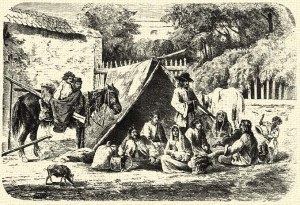 So I’m writing this book, set in Englandin 1812. And somehow a group of the people sometimes referred to as Gypsies, or Travelers, or Tinkers, has appeared and is playing arole in the story. And the research, and the ramifications, and the competing needs to be accurate in both my depiction of these people, and my depiction of the attitudes of the society around them, is making me a little crazy.
So I’m writing this book, set in Englandin 1812. And somehow a group of the people sometimes referred to as Gypsies, or Travelers, or Tinkers, has appeared and is playing arole in the story. And the research, and the ramifications, and the competing needs to be accurate in both my depiction of these people, and my depiction of the attitudes of the society around them, is making me a little crazy.
Let me just say: I am one of those people who gets a little testy when I encounter historical fic...
January 14, 2015
Death and the Writer
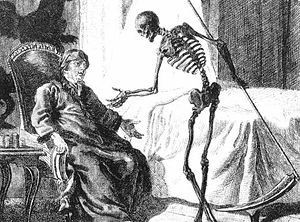 I’ve been thinking about killing people.
I’ve been thinking about killing people.
In books. Killing characters, great and small. First, why kill a character? Is it something as mechanical as “because the plot needed someone to die there?” Why kill aparticularcharacter, then? What does it do for the story? For the other characters in the story?Yeah,this is where I get a little woo-woo and fuzzy, because I’m a write-by-the-seat-of-my-pants kind of girl, and often I don’t know why I kill someone off until I finish the work.And even when...
January 1, 2015
For God’s Sake, Put on Some Clothes (mark II*)
Last night my husband and I found ourselves watching The Transporter the way you do after a major holiday: flopped on the couch, too tired to move, watching The Thing That’s On because where’s the remote?). It’s a fun-dumb movie, lighter fare than I had expected, very violent but curiously… well, light. Almost sweet. The film was made in 2002, which means it’s now moving into the realm of Elder-Statesmovie, and its star, Jason Statham, looks curiously young and bli...
December 20, 2014
Words and Pictures
 There are someillustrations that are
There are someillustrations that are 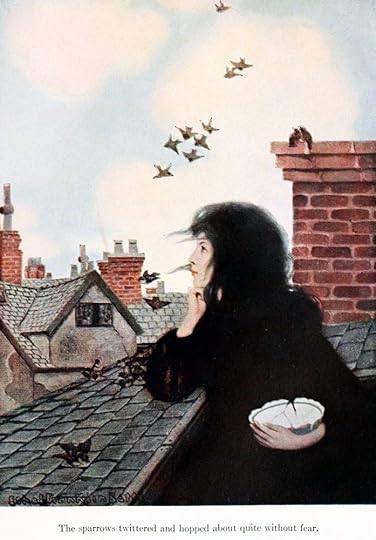 so integral to my memory of books I read as a kid that to say the name of a book calls them immediately to mind. Say“A Little Princess”and I think ofSara Crewe, pale little face framed by a cloud of dark hair, sitting disconsolate in her wretched attic, or a little more optimistically, of Sara, cracked bowl in hand, looking dreamily out over the London rooftops. Both illustrations are from an edition ofA Little PrincessI did not own–we had it in my classro...
so integral to my memory of books I read as a kid that to say the name of a book calls them immediately to mind. Say“A Little Princess”and I think ofSara Crewe, pale little face framed by a cloud of dark hair, sitting disconsolate in her wretched attic, or a little more optimistically, of Sara, cracked bowl in hand, looking dreamily out over the London rooftops. Both illustrations are from an edition ofA Little PrincessI did not own–we had it in my classro...
December 3, 2014
My Cyber-House
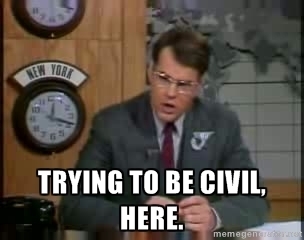 I have become, in what I hope is the nicest possible way, a bit of a martinet about tone and discourse in my living room. I love good chewy discussions, but I try, regardless of my level of engagement (or frustration or incomprehension or general bogglement) not to name-call or make generalizations. And if I catch myself slipping, I try to reverse the trend. Because I really, truly do believe (in part from watching my kids, who are passionately political, but really good listeners) that we’re...
I have become, in what I hope is the nicest possible way, a bit of a martinet about tone and discourse in my living room. I love good chewy discussions, but I try, regardless of my level of engagement (or frustration or incomprehension or general bogglement) not to name-call or make generalizations. And if I catch myself slipping, I try to reverse the trend. Because I really, truly do believe (in part from watching my kids, who are passionately political, but really good listeners) that we’re...
November 19, 2014
Publishing Is Not a Monolith
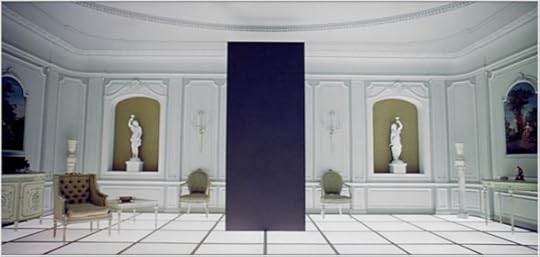 As I have done a lot lately, I spent the past weekend with my aunt and uncle, helping them with some household stuff. My uncle is an emeritus professor of anatomy at UCLA; my aunt ran the Chancellor’s Communication Service. Both have decades of involvement with the university, and both of them are much accomplished and smart cookies.
As I have done a lot lately, I spent the past weekend with my aunt and uncle, helping them with some household stuff. My uncle is an emeritus professor of anatomy at UCLA; my aunt ran the Chancellor’s Communication Service. Both have decades of involvement with the university, and both of them are much accomplished and smart cookies.
At one point, as we were eating lunch, I was discussing my current search for employment, and a couple of jobs in which I am interested. My uncle seemed puzzled,...
November 16, 2014
Fight Scenes: Time Dilation
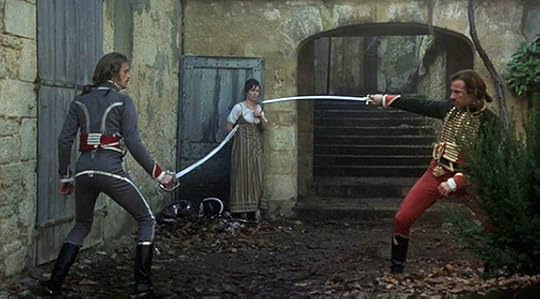
Sabre Fight from The Duellists
I sawInterstellarlast week, a hugely ambitious, very heady film about…oh, kind of everything. The future of the human race. Striving. Time. Love. Space. Loneliness. Duplicity. Ecology. Parenthood. It’s beautiful to look at (well, Christopher Nolan) and well acted, and curiously soggy in places when Nolan attempts to be genuinely affecting. And the dialogue is mixed so low in places that I swear I missed some important plot points (when you’re married to a sound e...
October 15, 2014
Raising Feminists, the Movie Edition
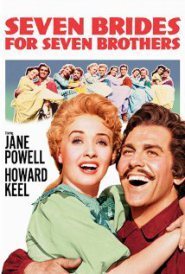 I was going to write about my current obsessivehobby of beading, but thenSeven Brides for Seven Brotherswas on TV. And I was appalled all over that I let my impressionable daughters watch it when they were small, and impressed that it didn’t seem to do them any lasting harm.
I was going to write about my current obsessivehobby of beading, but thenSeven Brides for Seven Brotherswas on TV. And I was appalled all over that I let my impressionable daughters watch it when they were small, and impressed that it didn’t seem to do them any lasting harm.
My family watches a lot of movies, and many of them are old musicalsfrom the 40s and 50s. Seven Brides for Seven Brothersis a1954MGM musical based on a short story by Stephen Vincent Benet called “The Sobbin’ Women.”Out in...
Madeleine Robins: Journal
- Madeleine E. Robins's profile
- 124 followers


